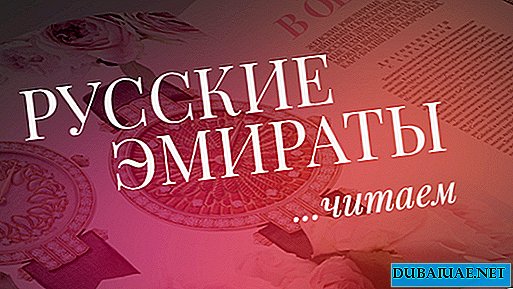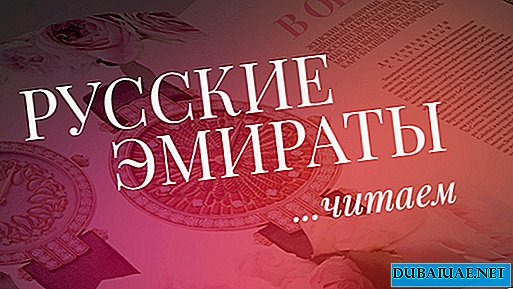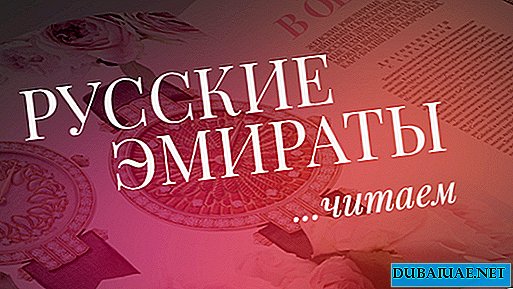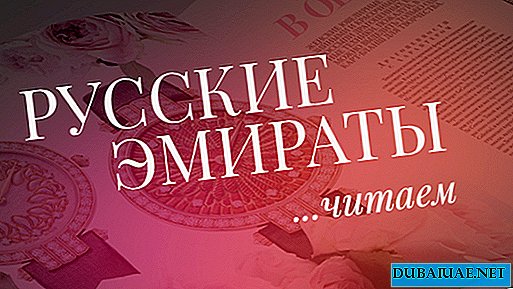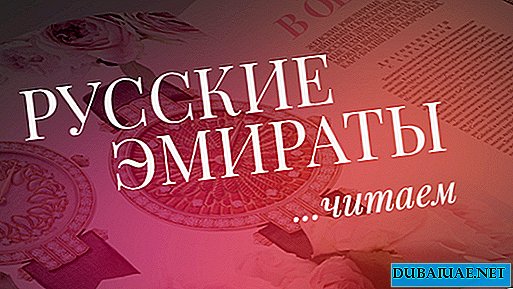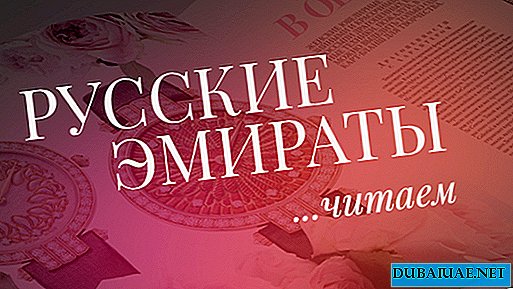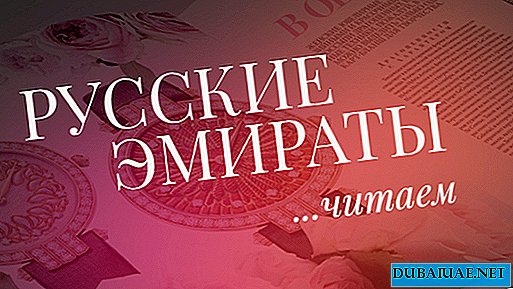 TODAY THERE ARE A LOT OF PEOPLE SUFFERING FROM THE EMPTY OF THIS WORLD. Moreover, next to it are the immortal works of Bach and Mozart, the creation of Goethe and Dante. And MORE - SPACE FUGI AND GRAND, ENCRYPTED IN THE WORDS OF THOUGHT. THIS ENTIRE FABULOUS WORLD IS FULL OF LIFE, DIVINE HUMOR AND SPIRITUAL MOVEMENT. ABOUT HOW TO LEARN TO REALLY UNDERSTAND UNDERSTANDING THE GREAT ART OF CLASSICAL MUSIC, WE TALKED WITH A KNOWN VIOLIN AND A WRITER, A RADIO TELEVISION, A POPULARIZER OF CLASSIC MUSEUM.
TODAY THERE ARE A LOT OF PEOPLE SUFFERING FROM THE EMPTY OF THIS WORLD. Moreover, next to it are the immortal works of Bach and Mozart, the creation of Goethe and Dante. And MORE - SPACE FUGI AND GRAND, ENCRYPTED IN THE WORDS OF THOUGHT. THIS ENTIRE FABULOUS WORLD IS FULL OF LIFE, DIVINE HUMOR AND SPIRITUAL MOVEMENT. ABOUT HOW TO LEARN TO REALLY UNDERSTAND UNDERSTANDING THE GREAT ART OF CLASSICAL MUSIC, WE TALKED WITH A KNOWN VIOLIN AND A WRITER, A RADIO TELEVISION, A POPULARIZER OF CLASSIC MUSEUM.
Mikhail Semenovich, how important is it nowadays to bring people back to the classics?
Mikhail Kazinik: The word "return" will not be entirely accurate. For many generations and even centuries, the great music that we call classics today did not belong to the common people - it belonged to a certain circle. In different centuries, people in this circle were called differently - blue blood, lord, nobleman and so on. The serfs always had their own songs and dances. And people of blue blood had this music. She was their sign and distinguished them by gender. The closer the man was to the elite and the nobility of those times, the more he showed love for music, because understanding it was a symbol of the carrier of blue blood. When the two aristocrats met, they, of course, were not talking about how to survive — they were talking about Bach, Mozart, Beethoven. But now, thanks to an unprecedented information explosion, great music comes to the house of an academician and a farmer, a businessman and a clerk, a teenager and a pensioner almost for free. And if we want to build a civilization whose representatives will be true humanists, thinking and creative people, then we can not do without classical art and music. It was not by chance that I opened the 2005 Nobel concert with the words: “Dear dads, mothers, grandparents! If you want your children to take the first step towards the Nobel Prize, then do not start with physics, chemistry or mathematics. Start with music, because it is in it that the highest divine codes are located. " Music absolutely incomprehensibly, mysteriously tunes the brain to clear logic, structures thinking, avoids accidents, absurdities, teaches you to instantly understand all the stupidity of what you hear - for example, from the TV screen. In a word, it teaches everything that a large part of the population is now almost unable to do. Parents should be especially interested in having their children listen to Bach and Mozart. Because no educator, parent and no school will do more than music does for a child.

Why do you think classical music is so powerful?
Mikhail Kazinik: Classical music is not just beautiful - it reveals secret signs, takes people to another Universe, to a different level of thinking and being. This music has a therapeutic effect.
A person not only hears beauty, but also enjoys it, falls into an unknown space. This is catharsis, purification, departure from everyday life. Any person, no matter where he lives: in the impoverished Russian hinterland or in luxurious Dubai, can be equally yearning. Indeed, you get used to beautiful furniture, to a good house, a warm sea very quickly. The only thing that a person cannot get used to is the constant feeling of the beauty of music, art and poetry. They are always new. No material values in this world will satisfy a person. Only art, only creative and spiritual can make you happy. And the peak of spirituality is music. Imagine how civilization went from the first wild cries and beating to drums to the miracle when the whole audience listens to Beethoven’s 5th symphony, and there are tears of happiness in front of people. From what? Not a single word or picture! Musicians sit and play, and people experience unprecedented feelings. I think this is the main sign that you are a person, homo sapiens, at a high stage of development.
Let me name a few classic works that, it seems to me, have a strong effect on a person, raise him above everything material, and which everyone needs to know, and you just continue this list, okay?
Mikhail Kazinik: Let's.
Aria "Erbarme Dich" from "Passion for Matthew" Bach ", 29th Beethoven sonata" Hammerklavir ", prelude" Afternoon rest of the faun "Debussy, nocturnes of Chopin," Elegy "of Rachmaninov," Nimrod "of Elgar," Morning "of Grieg ... Kazinik:... Haydn’s London symphonies, Mozart’s last four symphonies, all nine Beethoven’s symphonies, Brahms’s Fourth Symphony (although it’s best to listen to all four of his symphonies - Brahms should not miss a single sound), Frank Symphony, Berlioz’s Fantastic Symphony. Mozart's piano and violin concerts, concerts for piano by Grieg and Schumann, for violin - Beethoven and Mendelssohn. And if you ask me to name miniatures, then I will name not only Chopin's nocturnes, but also his ballads. I believe that Ballad No. 1 in G minor should be heard by everyone who is truly dear to European culture.
And what about the works of Russian composers?
Mikhail Kazinik: Pyotr Ilyich Tchaikovsky - Andante Maestoso and The Waltz of the Flowers from the ballet The Nutcracker, Glinka - The Waltz Fantasy. This is the beginning. And then - Tchaikovsky: fantasy overture “Romeo and Juliet”, “Francesca do Rimini”, Fourth, Fifth and Sixth Symphonies. Of course, the ingenious "Pictures from the exhibition" by Mussorgsky, "Scheherazade" by Rimsky-Korsakov. The second and third piano concerts of Rachmaninoff, his own prelude.
 You wrote the book "Secrets of Geniuses", which has already been reprinted many times and where you talk in detail and very interestingly about how to not only communicate with geniuses, but also to educate a genius listener, reader and viewer in yourself. Do you think you managed to unravel the secret of geniuses?
You wrote the book "Secrets of Geniuses", which has already been reprinted many times and where you talk in detail and very interestingly about how to not only communicate with geniuses, but also to educate a genius listener, reader and viewer in yourself. Do you think you managed to unravel the secret of geniuses?
Mikhail Kazinik: Until the end, probably no one can solve the mystery of genius. There are some guesses. Geniuses themselves slightly opened the veil of secrecy. Pushkin wrote: "Oh, how many wonderful discoveries the spirit of enlightenment is preparing for us / And experience, the son of difficult mistakes / And genius, friend of paradoxes." Brilliant thinking is paradoxical thinking. "Talent falls into all goals, and genius falls into goals that others do not see," Schopenhauer wrote. This is the fundamental difference between geniuses and everyone else.
How are geniuses arranged, since they can fall into goals that no one sees?
Mikhail Kazinik: I think they are messengers. And through them, through their creations, we touch the higher spheres of being. Outwardly, geniuses are unremarkable - features can only be found in the secrets of their psyche. Geniuses are most often not adapted to everyday life. They were rarely rich or happy, surrounded by wives, children, a beautiful garden or a cozy house. As a rule, they were alone, like Beethoven, addicted to employers like Bach or Haydn, died early like Mozart, went crazy like Schumann, or had a drug addiction like Berlioz. The whole Fantastic Symphony of Berlioz is a rare case of describing the state of an artist who, due to unrequited love, accepted opium and, thanks to unknown visions, falls into a terrible Sabbath or walks to execution. This is the only hallucination symphony in the world.
There are geniuses who write works, and there are geniuses who perform them. Do you think the performers are able to surpass the talent of the creator?
Mikhail Kazinik: I think that it is impossible to surpass the original. A brilliant performer can open to listeners the depths of a musical work. What are musical parts, actually? This is a cryptography. But for the uninitiated - only the icons that indicate that you need to play louder here, and here it is quieter. Higher or lower, faster or slower. Some artist will play “louder here and quieter here”, but nothing stirs in your soul. And the other will play, reveal the subconscious codes that the composer put into notes, and you will experience incredible happiness. Every work has several levels of perception.
The first is superficial (married, divorced, born, died, scared, betrayed). Second level - why? what is behind this? what's next? For example, already on the 40th page of Crime and Punishment, Dostoevsky wrote that the old percent-killer and the murderer Rodion Romanovich Raskolnikov had been killed. He told everything at once, and then he invited us to read 500 pages of text. What to read, an ordinary reader will say, everything is already clear! No, says Dostoevsky, I haven’t said anything yet. It is not important who killed, but why killed. This is another level of understanding.
And the highest level?
Mikhail Kazinik: This is the level after which a person comes and writes poetry, prose, paintings, although he did not do this before. All around say: "What is the matter with you? You are completely different from yourself, you have become brighter."
You travel a lot with lectures, communicate with our compatriots around the world. Do you think they are different from living in Russia?
Mikhail Kazinik: Before, I would say that they are different. The Russians living in Russia are closer to me because they go to art, to the light from darkness, and, for example, the Russians living in America come from normal houses, along normal roads, in good cars, who eat well. And in Russia they can listen to Tchaikovsky instead of food. But recently, I had two nights in a row in Chicago in a row, and after the first concert they suddenly announced to the whole of Michigan that there was a terrible tornado tomorrow, and asked me to refrain from leaving home. And literally an hour before the concert, this tornado began. My pale producer ran up to me: “Mikhail Semenovich, of course, they all will not come, that’s clear. Our second concert will fly by. How pathetic!” And suddenly - the audience’s calls: “we are going”; there is a fallen tree, someone turned off the light, but "we are going!" People could not open the doors of the cars, and the young people helped the elderly to hold the door. People ran across these meters from the car to the hall. And when I went on stage, I saw a full hall. I even had tears in my eyes, because they were risking, they were told to them that they would not leave their houses without emergency. And then they tell me from the audience: "And this was an urgent need." So recklessly, probably, only a Russian can act.
What really is "Russian culture"? Can you give a definition?
Mikhail Kazinik: Russian culture is first of all language, speech and a special understanding of Russian literature, music and poetry. This is a great phenomenon. For many centuries, Russia was closed, and only Peter the Great, having cut a window to Europe, helped literally in a hundred years Russia not only caught up with the whole world and Europeanized, but also showed the world the greatest examples of literature, music, poetry and architecture. Painting came a little later, by the 20th century - it was Malevich, Kandinsky, Chagall and others. Not a single nation or people, except perhaps the Norwegians, has shown the world such rapid spiritual growth. But when the patriots start shouting "Hurray," I reassure them and say: this is not all of you, this is just a group of people, and you have not even mastered what they created. I give them an example. Once I performed in Sweden for farmers, and we played Borodin's Second Quartet. A 90-year-old farmer came up and said with tears in his eyes: "And I thought that I would die and never again hear my beloved Second Quartet of Borodin!" Then I thought: to find in Russia such a farmer who does not want to die until he hears Borodin's Second Quartet again. This is another level. Therefore, you need to be happy and proud of Russian culture only when you yourself have mastered it, felt when it has passed through you and through your children. Listen to Borodin, Musorsky, understand Tchaikovsky and Scriabin, then you will understand the messianism and the spirit of Russian culture. In the meantime, you do not understand them - do not shout "Hurray." Do not praise yourself until you read and understand Leskov, whom, by the way, both Dostoevsky and Tolstoy envied ...
Let's talk about the connection between music and the exact sciences. Einstein with a violin - this is far from an accident?
Mikhail Kazinik: Music, no doubt, leads to mathematics and physics. And the fact that Einstein played the violin is, of course, not an accident. Max Planck, who played the piano with him and who for a long time could not decide who he would be: a pianist or physicist, remained a brilliant pianist all his life. Is it a match? Grigory Perelman, an equal mind to Einstein who proved Poincare’s theorem, in his youth did not know where to go: to the Leningrad Conservatory (violin class), or to mehmat. And all because music and mathematics are twofold knowledge.
So you said once that Bach Fugues allowed you to understand Einstein’s formula?
Mikhail Kazinik: Einstein himself wrote in one of the letters that if there were no Bach fugues, he would never have come to the formula E = mc².
In other words, music and physics are equal ways to comprehend the secrets of the universe?
Mikhail Kazinik: Absolutely. Remember, Hermann Hesse says in his novel “The Bead Game”: “All games in this select country consist of music and mathematics.” Music is built according to the laws of mathematics, and mathematics within itself includes the structure of music. Only mathematics is a rational part of thinking, and music is emotional. The whole Bach is the highest mathematical formulas. Gottfried Leibniz said: "Music is a hidden arithmetic exercise of the soul, which calculates without knowing it."
Why do you think there are so few ingenious composers in our time?
Mikhail Kazinik: There are always few geniuses, but they are. From time to time I make programs about them. Nevertheless, the “classical” is what has been tested by time. So maybe it's worth the wait. At different times, there were geniuses who were completely unclaimed in life. For example, the American composer Charles Ives. He worked all his life as the owner of an insurance bureau, received a lot of money, and wrote music for himself. And only when he was already 75 years old, he received the first recognition. The composer Alla Elana Cohen lives in America, whom I love very much and I think that in the future her music will become a classic, because it is based on ancient cultures: Jewish, Egyptian, Indian, and she lifts the ancient layers with her music, connecting them with modern forms of thinking. There is a composer Lera Auerbach from Chelyabinsk.
She also lives in America now, but it is already clear that she is a great composer of the 21st century. Listen to her music - you will immediately understand. She generously shares it on the Internet. Not to mention the fact that the great Krzysztof Penderecki, a Polish composer of the 20th century, is still alive. In the future, the world will reveal other geniuses. Now some man is sitting in a small hole, composing music and laying it on the table. But after all, Schubert did not hear even one of his symphonies, performed during his lifetime. But this did not stop him.


